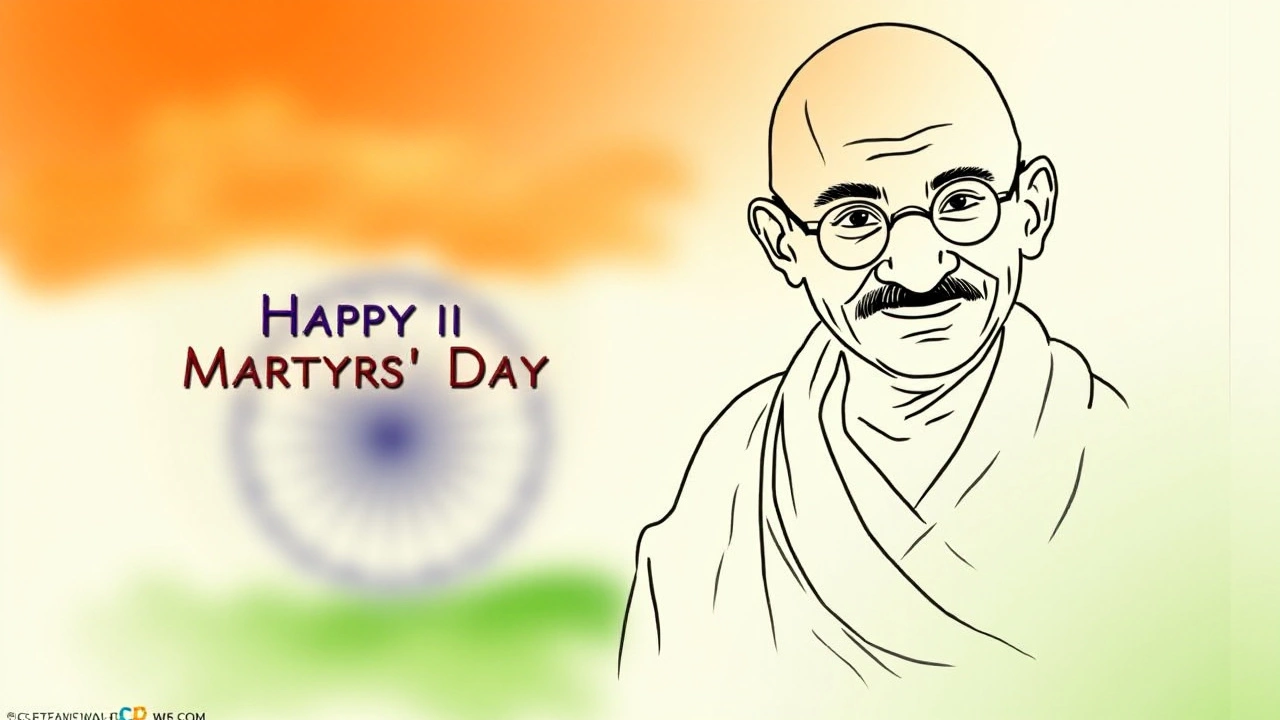The Importance of Mahatma Gandhi's Death Anniversary
The death anniversary of Mahatma Gandhi, observed on January 30 each year, holds unmatched significance in India's calendar. Known officially as Martyrs' Day, or Shaheed Diwas in Hindi, this day is recognized for commemorating the assassination of Mahatma Gandhi in 1948 and, by extension, honoring the numerous individuals who laid down their lives during India's prolonged fight for independence from British colonial rule. While the focus tends to rightly tilt towards Gandhi, the inclusion of all martyrs in this remembrance symbolizes a broader appreciation of the patriotic fervor and sacrifices that made modern India possible. Gandhi's method of leading the country towards freedom through non-violent struggle remains a testament to his unwavering belief in peaceful resistance.

Tracing the Historical Roots of Martyrs' Day
The assassination of Mahatma Gandhi was a shocking event at Birla Bhawan in Delhi. It was on January 30, 1948, that Nathuram Godse's bullet silenced one of history's most revered leaders. Gandhi had dedicated his life to pursuing an India free from the clutches of British imperialism, and his loss sent ripples across the nation and indeed the world. Since then, Martyrs' Day has been observed as a poignant reminder of this tragic event, as well as a day to reflect upon the principles Gandhi espoused. Gandhi's dedication to non-violence and civil disobedience had made him an emblem of moral leadership, and his untimely death brought home the harsh realities of political strife.
Understanding the Significance of Martyrs' Day
Beyond remembering the assassination itself, Martyrs' Day is deeply symbolic. It reflects the spirit of sacrifice that numerous men and women demonstrated by giving up their futures and sometimes their families to pursue India's freedom. As people gather across the country, this day becomes an emblem of not just reflection but of continuing dedication to the ideals of justice, freedom, and equality. These values remain close to Gandhi's teachings, which advocated for a just society where every citizen had a voice. The remembrance is exercised through a variety of ceremonies, speeches by leaders, and educational activities that create awareness among the younger generations about the battles their predecessors fought.
Observations and Engagements Across India
The manner of observing Martyrs' Day ensures that the memory of those who sacrificed everything remains alive in the collective consciousness. One of the central events is held at Raj Ghat, Delhi, where Mahatma Gandhi's memorial is situated. Here, the President, Prime Minister, and other dignitaries gather to pay their respects, offering tributes and laying wreaths. Silent prayers and a moment of reflection signify the nation's gratitude and collective mourning. Educational institutions take the opportunity to organize lectures and discussions that focus on explaining the significance of the day, along with projects, dramas, and essays aimed at instilling a sense of history and patriotism. The armed forces too acknowledge the day solemnly, with ceremonies at the Amar Jawan Jyoti, a memorial for soldiers who gave their lives in service of the nation.

Key Facts on Martyrs' Day
The day, although solemn, is significant in ensuring that the nation's gratitude towards its heroes is neither forgotten nor diminished. A variety of observances communicate a unified message of respect and acknowledgment. Gandhian philosophy and principles get rekindled in public discourse, encouraging people to revisit the past, albeit with an eye on building a more united and peaceful future. The acknowledgement of unsung heroes whose names may not grace the pages of history, yet whose efforts remain intertwined with the country's path to sovereignty, is a vital component of this day. As citizens pause to remember, the day also serves as a reminder that freedom carries the indelible imprint of resilience and altruism.
Conclusion: Building on a Legacy
With Martyrs' Day being a vital reminder of the sacrifices endured in pursuit of freedom, the events and reflections carried out on this day stem from a need to perpetuate values that these martyrs and Gandhi himself manifested. Their collective stories of bravery and self-denial lay the groundwork for how modern India perceives itself. In honoring these individuals, the nation is urged to contemplate its values and enact policies and practices that resonate with the sacrifices made. Thus, Gandhi's memory and the commemoration of Martyrs' Day are both anchors and guiding lights in the journey of India as it treads forward, respecting its past while forging confidently into its future.
